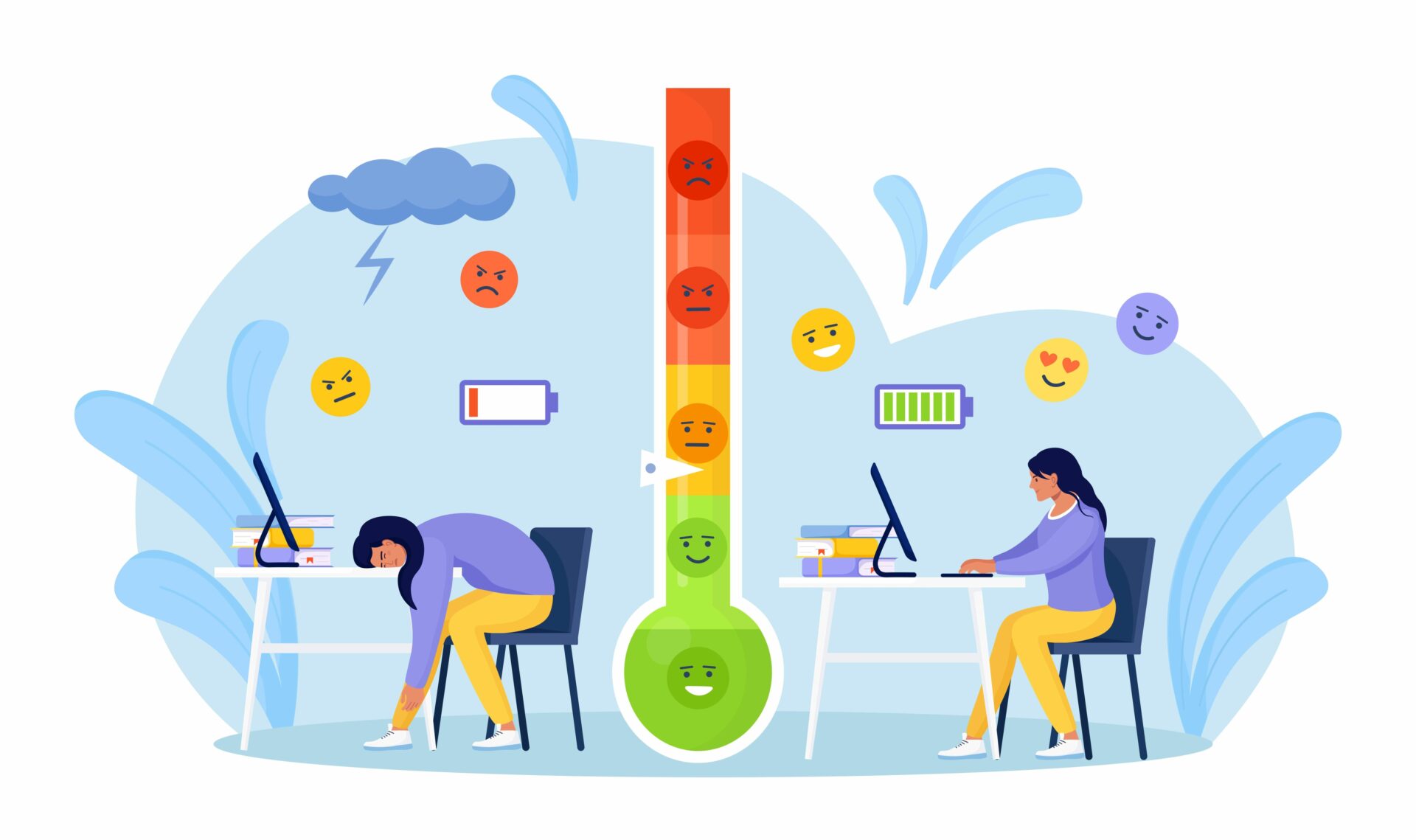Diabetes Fatigue Syndrome
What is diabetes fatigue?
Diabetes fatigue is a recognised syndrome with various features and possible causes, that can affect people with both type 1 and type 2 diabetes. It is defined by physical and/or mental exhaustion or ‘easy fatiguability’ which is exhaustion at a lower level of work or stress that would be considered normal. Diabetes fatigue syndrome is extremely common and feels different from person to person; it has a negative impact on both physical and mental functioning and can significantly reduce an individual’s quality of life. Often, fatigue is one of the first signs a person notices before going to the doctor and being diagnosed with prediabetes or type 2 diabetes.
What are the symptoms of diabetes fatigue syndrome?
Physical symptoms of fatigue include:
- reduced activity
- low energy
- tiredness
- decreased physical endurance
- increased effort to do physical tasks
- general weakness
- heaviness, slowness or sluggishness
- non-restorative sleep
- sleepiness
Cognitive symptoms include:
- decreased concentration
- decreased attention
- decreased mental endurance
- slower thinking
Emotional symptoms include:
- decreased motivation or initiative (apathy)
- decreased interest
- feeling overwhelmed
- feeling bored
- aversion to effort
- feeling low
Symptoms vs. number-driven targets
Although diabetes fatigue syndrome is very common, modern diabetes care does not always prioritise treatment and management of it. Indeed, conventional care for people with diabetes is mostly focused on number-driven targets such as HbA1c and weight. And, whilst this approach has its benefits, it is often not sufficient for people with type 2 diabetes whose symptoms may be being overlooked or minimised. Frequently reported symptoms include mental and physical exhaustion, gastrointestinal side effects from medication, depression, and anxiety. There are various possible causes of these symptoms which can be complicated and may or may not continue after blood sugar control has been achieved.
A vicious cycle
It is thought that diabetes and fatigue have a bidirectional relationship that can feed and worsen each other in a vicious cycle. For instance, diabetes can result in fatigue due to elevated blood sugar levels or medication side effects for example. This can contribute to apathy and deterioration of healthy lifestyle behaviours such as good nutrition and regular movement or exercise, leading to the persistence and progression of type 2 diabetes and resulting complications.
Diabetes fatigue and mental health
Diabetes fatigue can have a significant impact on mental health. This is particularly true for people who struggle to self-manage diabetes which can lead to frustration and an increased sense of fatiguability, in turn hindering efforts to manage the condition with diet and lifestyle. Poor mental health can also impact sleep quality, further exacerbating the problem.
What are the causes of diabetes fatigue syndrome?
Whilst some might assume that fatigue in people with diabetes is solely related to poorly managed blood sugar levels, the fact that fatigue often persists long after blood sugars are under control shows that the foundations of diabetes fatigue is likely more complicated and most likely multifactorial.
Diabetes fatigue syndrome is thought therefore to be caused by a variety of factors including lifestyle, nutrition, medical and psychological. Doctors and healthcare professionals sometimes categorise these factors into ‘endocrine’ and ‘non-endocrine’ causes, meaning that the contributing factors are either related to hormone dysregulation or to something different.
Endocrine causes include hyperglycaemia or high blood sugar levels, hypoglycaemia or low blood sugar levels, high HbA1c which is a marker of average blood sugar levels over time, and diabetes complications such as heart failure and neuropathy or nerve damage. Also included in this category are side effects from treatment such as corticosteroids, statins or diuretics which can contribute to fatigue in different ways.
Non-endocrine causes can be lifestyle related such as lack of movement and exercise, poor sleep hygiene, excessive caffeine or alcohol consumption, and poor diets such as excessive calorie intake or over-restriction of calorie intake. They can also be physiological such as low iron levels, vitamin deficiency or diabetes distress.
Diabetes distress
Diabetes distress is when a person feels defeated, frustrated, and overwhelmed by their condition. These feelings might come and go but can develop into more serious mental health conditions such as depression.
With so many possible causes and contributing factors, it is important that diabetes fatigue is evaluated from a wide perspective in each individual. To allow someone with diabetes the best chance of overcoming fatigue, all areas of that person’s health and history should be analysed to identify areas to target for improvement. These include medical, psychological, physiological, and all areas of lifestyle. This can be done with help from various healthcare practitioners and professionals such as your GP, diabetes nurse, dietitian, nutritionist, fitness instructor, and specialist lifestyle programmes such as the NUVI Impact Programme which combine in-depth lifestyle education with medical, nutrition, and health coach support.
How to manage diabetes fatigue?

This may be a question you are currently faced with yourself; the good news is that there are several ways in which people with diabetes can manage or prevent fatigue, alongside their usual medical team support. Some first steps that could be tried include initially focussing on sleep, nutrition and exercise.
Sleep
Sleep is a core pillar of health. Our bodies need good quality rest in order to repair and function at an optimum level. Without regular, adequate sleep, we become easily tired and fatigued as well as more at risk of various health conditions such as heart disease, diabetes, cancer and dementia. Research shows that just one week of consistently short sleep, or even one night of less than 4 hours can contribute to insulin resistance and high blood sugar levels. This can further exacerbate tiredness and fatigue.
It is recommended that the ideal amount of sleep is between 7 and 9 hours every night. Try these tips to improve your sleep:
- Regular pattern: try to stick to a regular sleep and wake time to keep your circadian rhythm stable.
- Develop a bedtime routine to help wind down at least 30 minutes before bed: stretch, read in low lighting, listen to soothing music, and have a warm bath or shower.
- Natural light: expose your eyes to natural light in the daytime, particularly in the morning.
- Low lighting in the evening: use dim lighting in the evening for the 2-3 hours before bed.
- Limit blue light: avoid the use of blue light for 60-90 minutes prior to sleep. Most devices have a night mode that can be set to come on at a specified time. Blue light-restricting glasses can also be purchased.
- Daily movement: exercise and increased movement can help improve sleep quality.
- Avoid caffeine: ideally after midday for most people.
- Limit alcohol: alcohol causes sedation, and not directly to sleep; it causes disturbed, fragmented and lighter sleep, and it blocks important rapid eye movement (REM) sleep important for learning, memory, mood and longevity.
- Stop eating 2-3 hours before bed.
- Temperature: set your bedroom to a comfortable temperature, for most adults this will be 15-22 degrees Celsius. Being too cold or too hot worsens sleep quality.
- Control light by using blackout curtains or an eye mask.
Nutrition
There are a few basic nutrition rules you can follow to reduce fatigue, optimise your energy levels and reduces your risk of disease. These include:
- Avoid ultra-processed foods. These are foods that have been made in a factory using multiple ingredients that you wouldn’t add to your cooking at home. Ultra-processed foods are often high in salt, sugar, and unhealthy fats and usually lack fibre and other healthy nutrients. They tend to be digested quickly causing blood sugar spikes, and subsequent dips in energy. Over time, ultra-processed foods will change your gut bacteria, reducing your immune function, mood, and baseline energy levels.
- Focus on real, fresh, home-cooked food. Fill your plate with freshly prepared vegetables, lean meat, fish, poultry and game. Fruit, dairy, nuts, seeds, and whole grains can also be included in smaller amounts.
- Drink plenty of water. Staying hydrated is vital for optimum sleep quality and avoiding fatigue through adequate rest. It ensures that the body is able to remove toxins and waste effectively and move nutrients around the body in our blood effectively, vital for avoiding fatigue and keeping your head clear.
Exercise
Exercise in all its forms is crucial because it is known to reduce the risk of developing type 2 diabetes, and can also help you manage type 2 diabetes, reducing the need for medication. It does this by boosting the effect of insulin in the body, helping you to regulate blood sugar levels more effectively. This can improve symptoms of fatigue because it means that the body has a more consistent supply of energy in the bloodstream rather than the continuous spikes and troughs that are seen in people living with poorly managed diabetes.
A brisk walk for 15-30 minutes every day can significantly improve energy levels and mood, particularly when timed immediately after eating. Equally, strength training is effective at improving blood sugar control and boasts the additional benefits of improved muscle mass, balance, and bone density.
Summary
Diabetes fatigue syndrome is a common feature of type 1 and type 2 diabetes. It is likely caused by a combination of lifestyle, nutritional, medical, psychological and physiological factors and therefore requires a multi-pronged holistic approach to tackling it. Addressing lifestyle factors can be very difficult for patients without the right support and guidance, which is not always readily available through mainstream health systems. Solutions such as the NUVI Impact Programme can provide useful tools and support for people with diabetes. NUVI is able to provide people with a step-by-step approach to tackling their fatigue, with the support of a qualified nutritionist or registered dietitian.
References
- Kalra S, Sahay R. Diabetes Fatigue Syndrome. Diabetes Ther. 2018 Aug;9(4):1421-1429. doi: 10.1007/s13300-018-0453-x. Epub 2018 Jun 4. PMID: 29869049; PMCID: PMC6064586.
- Fritschi C, Quinn L. Fatigue in patients with diabetes: a review. J Psychosom Res. 2010 Jul;69(1):33-41. doi: 10.1016/j.jpsychores.2010.01.021. Epub 2010 Mar 23. PMID: 20630261; PMCID: PMC2905388.
- Ba J, Chen Y, Liu D. Fatigue in Adults with Type 2 Diabetes: A Systematic Review and Meta-analysis. West J Nurs Res. 2021 Feb;43(2):172-181. doi: 10.1177/0193945920938636. Epub 2020 Jul 5. PMID: 32627705.





